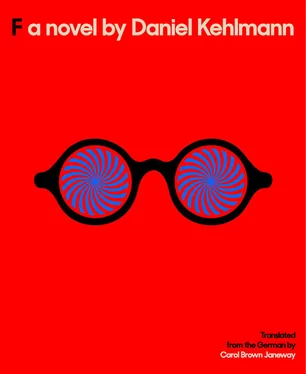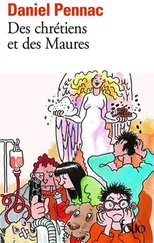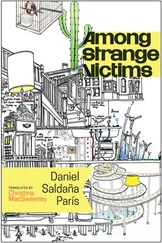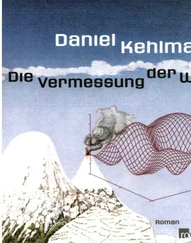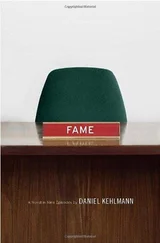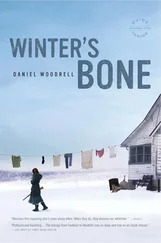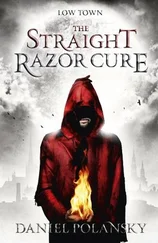“Hot!” cries Knut. “So hot, so hot!”
I was convinced that IT stocks would fall. On the other hand I’ve seen the opposite coming — not out of some insight into the market, but because in the meantime I’ve accustomed myself to the knowledge that everything that happens is the opposite of what I expect. But what should I follow: my insight, or the knowledge that I’m always wrong?
“March, April!” cries Knut. “Always rain. May — rain. Always! — and now this!”
But losses don’t frighten me anymore. If the market had developed the way I said it would, nothing would have changed. Rising share prices won’t save me anymore. It would take a miracle.
The phone vibrates, the screen says, Are you coming today?
Of course , I type.
As I’m hitting the Send button, I’m thinking about what excuse I could use in case she writes back that I should come at once. I have no time. Adolf Kluessen has checked in; he’s my most important client. But she’s usually working during the day, and if she writes that I shouldn’t come until the evening, she’ll feel guilty and that’s helpful, it’s something I can build on.
I stare at the phone. The screen with the gray face stares back. No answer.
And still no answer.
I close my eyes and count slowly to ten — Knut talks and I pay no attention. When I reach seven I lose patience, open my eyes, and look at the screen.
No answer.
Okay, forget it. I don’t need her, I get on better without her! And perhaps this is her revenge for last Sunday.
We met outside the entrance, it was an art movie house, they were showing Orson Welles’s last film, she absolutely wanted to see it, I wasn’t interested, but so what, no other film would have interested me either. The lobby stank of frying fat, and as we stood in the line for tickets we ran out of things to say. We were just taking our seats when a man jumped up in the row right in front of me and yelled my name.
It was such a shock that I didn’t recognize him right away. The first things to organize themselves were his features: mouth, nose, eyes. Then the ears resumed their usual places, and the entity became Dr. Uebelkron, the husband of Laura’s best friend, who was a fixture at all of our garden parties.
I hugged him like a long-lost brother. Then I hit him on the shoulder a couple of times and began to ask him questions like how his wife was doing, and his daughter, and his mother, and what were we all supposed to be making of this heat wave. The film had already started. People around us were shushing and clearly even Dr. Uebelkron wanted to leave things be, but I kept on talking, asking questions, didn’t give him time to answer, and kept manipulating his shoulder mercilessly. When I finally let go of him, he sank into his seat exhausted, without managing to ask who the woman with me was. I checked the time, waited exactly four minutes, pulled out my phone, cried, “Oh no,” “Oh God,” and “Coming right away,” leapt up, and ran out. It wasn’t until I was sitting in the taxi that I realized Sibylle was still in the cinema.
The phone vibrates. Good. Come!
When?
Three seconds later: Now!
Can’t , I type. Important client . It’s habit, so it feels like an excuse, but it’s the truth. I hit the Send button and wait.
Nothing.
So what’s going on, why isn’t she answering? Mobilizing my entire willpower I put the phone away. We’re here.
As always I get out on the street and leave Knut to drive into the underground garage. I can’t go down there, it’s simply not possible. Quickly through the blazing heat, the glass doors are opening already, and I’m in the lobby. The elevator takes me to the twelfth floor. I hurry through the open-plan office, full of identical faces in front of identical screens. Some of them I know, some I don’t, I’m glad that none of them speaks to me. Recently I’ve been forgetting too many names.
My secretaries greet me silently. One of them is beautiful, the other capable, they hate each other, and they’re not that fond of me either. I’ve slept with the beautiful one, her name is Elsa, six or seven times. I would have gotten rid of her a long time ago, except she could blackmail me. The other one, Kathi, I only slept with once, under the influence of new medication that made me do all sorts of things I don’t want to think about anymore.
“Mr. Kluessen is waiting,” says Kathi.
“Fine.” I go into my office, sit down behind the desk, fold my hands, and slowly count to ten. Then I finally pull the phone out of my pocket. No answer. Why is she doing this to me?
I administer Adolf Albert Kluessen’s entire estate, and I’ve lost everything. All the statements and accounts he’s received in the last two years were faked. The man is old and not very clever, and even if I’m no longer in any condition to win back his money, I can still manage to invent impressive balances and report gains I would have made, had I foreseen the movements of the market. I also add all sorts of curves to the figures, drawn in red, blue, and yellow, which increase trust. But every conversation with him has its dangers.
I stand up and go to the window. The view is spectacular; it’s hard to accustom yourself to the sheer extent of it, and the brightness. As ever, when the world, uninvited, threatens me with its sparkle and brilliance, I have to think of Ivan, and a long-gone afternoon in Arthur’s library. We were twenty-two, it was shortly before Christmas, Ivan had come from Oxford, I had come from the sanatorium.
“Tell!” he said.
I had almost no memory of the last months. Everything had been eggshell colored, the walls, the floor, the ceilings, the staff’s coats. At night you didn’t know whether the voices you were hearing came from the other patients or out of your own head.
“You have to play along,” said Ivan. “That’s the whole trick. You have to lie. You think people see through you, but nobody sees through anyone. People are impossible to read. You think other people get what’s going on inside you, but that’s wrong.”
“I don’t know what you’re talking about.”
“That’s the right answer. Watch, bend the rules. People are almost never spontaneous; mostly they’re machines. What they do, they do out of habit. You have to undo the rules, and then you have to follow them as if your life depended on it. Because it does. Your life depends on it.”
I stared at the table. Very old wood, a family heirloom, it once belonged to our great-grandfather, who had supposedly been an actor. The black grain made an unbelievably beautiful pattern. It surprised me that I should even notice such a thing, but then I realized I wasn’t the one who had noticed. It was Ivan.
“Truth!” he said. “That’s all well and good. But sometimes none of it gets you anywhere. Always ask what people are expecting of you. Say what people say. Do what people do. Ask yourself who exactly you’d like to be. Then ask yourself what that person you’d like to be would do. Then do it.”
“If the cell hadn’t split back then,” I said, “there would only have been one of us.”
“Concentrate!”
“But who would it have been? Me, or some third person we don’t know? Who?”
“The trick is to sort things out with yourself. That’s the hardest thing. Don’t expect help from anyone. And don’t imagine you can go into therapy. All it’ll teach you is to accept yourself. You get good at excuses.”
I should have told him he was right, I think now, I should never have gone into therapy. I would like to talk to him, even today, I need to see him, I need his advice. Maybe I could borrow money from him and disappear. A fake passport, a plane to Argentina, just me. It would still be possible.
Читать дальше
